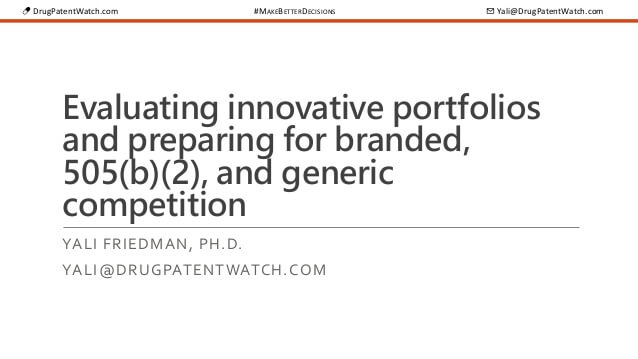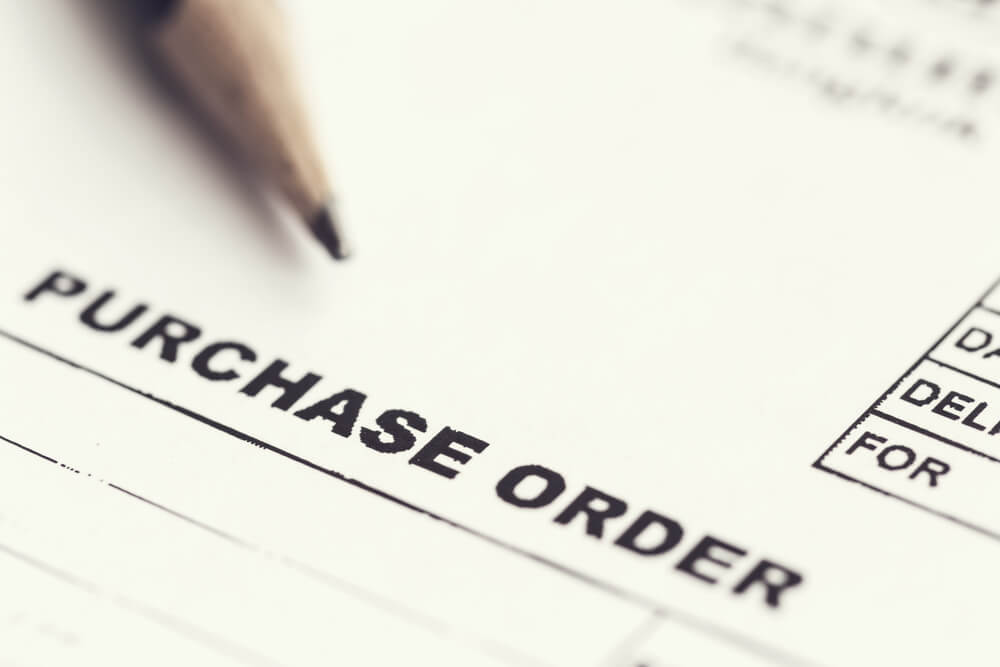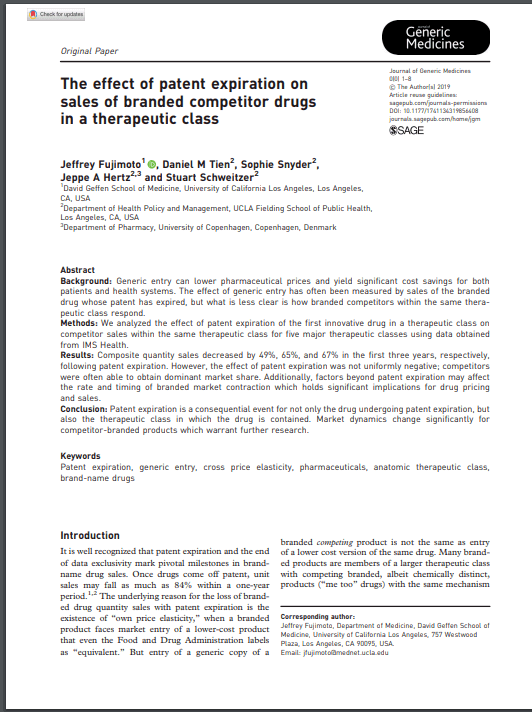Patent litigation represents a significant financial burden for pharmaceutical companies, with costs potentially reaching millions of dollars per case. Effectively managing these expenses is crucial for maintaining profitability while protecting valuable intellectual property assets. This report examines comprehensive strategies for controlling and reducing patent litigation costs in the pharmaceutical industry without compromising legal outcomes.
The average cost of patent litigation in the United States is $2.8 million per case, highlighting the substantial financial investment required to defend or prosecute patent rights1. For pharmaceutical companies, these costs can significantly impact research budgets and overall business performance, making cost management strategies essential.
Understanding the Financial Landscape of Drug Patent Litigation
Cost Profiles Across the Pharmaceutical Sector
Patent litigation costs vary significantly based on case complexity and potential damages. For cases with damages below $1 million, litigation costs average $700,000, while cases with damages between $1 million and $25 million see average costs of $2.3 million1. Biotechnology patent litigation, which often involves complex scientific considerations, averages $2.5 million per case1.
These figures underscore the significant financial commitment required when engaging in patent disputes. The complexity of pharmaceutical patents, which often involve intricate chemical compounds and biological processes, contributes to higher litigation expenses compared to other industries.
Key Cost Drivers in Pharmaceutical Patent Litigation
Legal fees represent a substantial portion of litigation expenses, with hourly rates for patent litigation attorneys ranging from $400 to $1,2001. These costs accumulate rapidly during extended litigation timeframes typical of pharmaceutical patent cases.
Discovery processes, expert witness testimony, and specialized technical analysis also contribute significantly to overall expenses. The scientific complexity of pharmaceutical patents often necessitates extensive expert involvement, further increasing costs.
Strategic Planning and Budgeting
Developing Comprehensive Litigation Strategies
Effective cost management begins with thorough strategic planning. A well-defined litigation strategy should align with business objectives and include a clear understanding of specific litigation goals2. This strategic approach helps pharmaceutical companies focus resources where they will have the greatest impact.
Collaboration with experienced legal counsel is crucial during this planning phase. Together, companies and their attorneys should map the entire litigation process, identifying critical milestones and decision points2. By anticipating challenges and planning responses, companies can avoid costly surprises and maintain better control over expenses.
Early Identification of Key Issues
Identifying core legal and factual questions early in the litigation process significantly streamlines efforts and reduces costs2. This focused approach prevents the dilution of resources across less impactful aspects of the case.
Legal counsel can help prioritize issues based on their potential impact on case outcomes, allowing companies to allocate resources effectively and concentrate on areas offering the highest return on investment2. Addressing key issues early can facilitate faster resolutions, potentially avoiding prolonged and expensive litigation.
Developing Realistic and Flexible Budgets
Creating a comprehensive budget covering all anticipated expenses—including legal fees, discovery costs, expert witness fees, and court-related expenses—is essential for effective cost management2. Involving legal counsel in the budgeting process provides more accurate estimates and ensures all potential costs are accounted for.
Flexibility in budgeting is crucial given litigation’s unpredictable nature. Setting aside a contingency fund helps manage unforeseen expenses without disrupting the overall financial plan2. Regular budget reviews and adjustments based on actual expenditures and case developments ensure companies remain financially prepared throughout the litigation process.
Leveraging Cost-Benefit Analysis
A thorough cost-benefit analysis provides valuable insights into the financial viability of pursuing litigation2. This analysis should weigh potential costs against expected benefits, considering factors such as the likelihood of winning, potential damages or settlements, and the strategic value of the litigation to the company’s broader patent portfolio and market position.
By conducting comprehensive cost-benefit analyses, pharmaceutical companies can make informed decisions about whether to proceed with litigation, settle, or explore alternative dispute resolution methods2.
Managing Legal Resources Effectively
Building a Cohesive Legal Team
Creating a well-structured team of internal and external legal professionals brings diverse skills and expertise to the litigation effort2. In-house counsel contributes detailed knowledge of the company’s operations and objectives, while external patent litigators offer specialized experience in pharmaceutical patent law.
Selecting the right external counsel is critical for cost management. Companies should seek firms with proven experience in pharmaceutical patent litigation and a clear understanding of the industry’s specific challenges2. Transparent communication about budget constraints and expectations helps align the goals of the company and the legal team.
Effective Use of In-House Resources
Leveraging in-house resources can lead to significant cost savings in patent litigation. In-house legal teams can handle various tasks that might otherwise be outsourced to more expensive external counsel, such as preliminary research, document review, and internal communications2.
In-house teams should be empowered to take substantial roles in managing the litigation process, including coordinating with external counsel, managing document discovery, and handling routine filings and correspondence2. By maximizing the use of in-house resources, pharmaceutical companies can keep external legal fees under control while maintaining greater oversight of the litigation process.
Comprehensive Legal Fees Management
The management of legal fees is a significant aspect of controlling litigation costs. Pharmaceutical companies should engage in detailed discussions with legal counsel to understand fee structures and negotiate arrangements that provide greater cost predictability2.
Alternative fee arrangements such as contingency fees, where the attorney’s payment depends on the outcome, or blended hourly rates can help control costs2. Regular audits of legal bills and detailed invoicing prevent overbilling and ensure transparency in legal expense management.
Optimizing Litigation Processes
Streamlining Discovery Procedures
Discovery is one of the most resource-intensive stages of patent litigation, involving the exchange of vast amounts of information and documents between parties2. Efficient management of this phase can yield substantial cost savings.
Companies should adopt a proactive approach by identifying and preserving relevant documents early, reducing the need for extensive and costly searches later2. Technology-assisted review (TAR) and predictive coding leverage artificial intelligence to prioritize and categorize documents, making the review process faster and less labor-intensive.
Proper training for legal staff on these technological tools can further enhance efficiency and reduce the time and resources required for document review, significantly decreasing overall litigation costs.
Tax Considerations in Patent Litigation
Recent developments in tax law offer opportunities for pharmaceutical companies to reduce the effective cost of patent litigation through favorable tax treatment.
The US Tax Court, in Mylan, Inc. & Subs. v. Commissioner, held that legal expenses incurred by drug manufacturers in defending patent infringement lawsuits under the Hatch-Waxman Act are currently deductible, rather than capitalized, for federal tax purposes3. This decision allows pharmaceutical companies to deduct litigation costs in the tax year incurred rather than capitalizing them to the basis of related assets.
The immediate deduction of litigation expenses, as opposed to recovering costs on a straight-line basis over 15 years (as would be required for capitalized costs), yields significant tax savings3. This favorable tax treatment effectively lowers the cost of patent litigation activity and may impact both the initiation of new patent lawsuits and the settlement of existing cases.
Preventive Strategies to Reduce Litigation Need
Building Strong Patent Portfolios
Pharmaceutical companies should aim to secure multiple layers of patent protection for their products, including patents on the active ingredient, formulation, manufacturing process, and methods of use4. This creates a more robust patent position that is more difficult for competitors to challenge or design around.
A diverse patent portfolio provides more options when litigation becomes necessary, allowing companies to assert the strongest patents for the specific situation4. This strategic approach to patent filing can strengthen a company’s position in potential disputes and may discourage potential infringers.
Conducting Thorough Pre-Litigation Due Diligence
Before initiating a patent lawsuit, pharmaceutical companies should carefully analyze the strength of their patent claims and potential defenses4. This includes reviewing the patent prosecution history, conducting prior art searches, and assessing the likelihood of success on various legal theories.
Thorough due diligence helps companies make informed decisions about whether to proceed with litigation, potentially avoiding unnecessary expenses on weaker cases.
Strategic Venue Selection
The choice of where to file a patent lawsuit can significantly impact both the outcome and the cost of litigation4. Some jurisdictions are more experienced with pharmaceutical patent cases and may offer more efficient proceedings.
The Eastern District of Texas and District of Delaware are popular venues for patent cases due to their experienced judges and established procedures for handling complex patent matters4. Strategic venue selection can lead to more predictable timelines and potentially lower costs through more efficient case management.
Conclusion
Managing drug patent litigation costs requires a multifaceted approach that combines strategic planning, efficient resource allocation, process optimization, and awareness of tax implications. By implementing comprehensive cost management strategies, pharmaceutical companies can protect their intellectual property rights while controlling the substantial expenses associated with patent litigation.
The financial impact of patent litigation on pharmaceutical companies extends beyond direct legal expenses to include opportunity costs and potential market impacts. By adopting proactive cost management strategies throughout the litigation lifecycle, companies can better allocate resources, maintain financial stability, and focus on their core mission of developing innovative medical treatments.
As the pharmaceutical industry continues to face complex patent challenges, companies that master these cost management techniques will be better positioned to navigate the intricate landscape of patent litigation while maintaining their competitive edge and innovation capacity.
Citations:
- https://patentpc.com/blog/the-cost-of-patent-litigation-key-statistics
- https://patentpc.com/blog/how-to-manage-patent-litigation-costs-effectively/
- https://www.hunton.com/insights/legal/did-patent-litigation-just-get-cheaper-tax-court-upholds-favorable-treatment-for-infringement-suit-expenses
- https://www.drugpatentwatch.com/blog/winning-drug-patent-disputes-proven-strategies-for-pharmaceutical-companies/
- https://www.unitypoint.org/news-and-articles/6-ways-to-reduce-prescription-drug-costs
- https://rsmus.com/insights/tax-alerts/2022/costs-to-sefend-hatch-waxman-patent-litigation-deductible-court-rules.html
- https://www.drugpatentwatch.com/blog/how-much-does-a-drug-patent-cost-a-comprehensive-guide-to-pharmaceutical-patent-expenses/
- https://www.quarles.com/newsroom/publications/strategies-and-best-practices-for-patent-litigation-budgeting
- https://www.burfordcapital.com/insights-news-events/insights-research/legal-finance-for-pharma/
- https://katten.com/pre-anda-litigation-strategies-and-tactics-for-developing-a-drug-product-and-patent-portfolio-third-edition
- https://www.mayoclinic.org/connected-care/7-ways-to-cut-medication-costs/vid-20508731
- https://news.bloomberglaw.com/ip-law/costs-soar-for-trade-secrets-pharma-patent-suits-survey-finds
- https://www.bartlit-beck.com/newsroom-news-118
- https://patentpc.com/blog/patent-litigation-in-the-pharmaceutical-industry-key-considerations
- https://www.pcmanet.org/pcma-blog/icymi-new-report-shows-cost-of-big-drug-companies-patent-abuse-advocates-for-a-more-affordable-market-call-for-solutions-to-increase-competition-2/02/15/2023/
- https://patentpc.com/blog/strategies-for-managing-patent-litigation-costs-in-high-risk-industries
- https://www.csrxp.org/fact-sheet-big-pharmas-patent-abuse-costs-american-patients-taxpayers-and-the-u-s-health-care-system-billions-of-dollars/
- https://www.journalofaccountancy.com/issues/2023/aug/drug-patent-litigation-expenditures-are-held-deductible.html
- https://www.aipla.org/list/innovate-articles/controlling-costs-of-a-patent-portfolio-the-little-things-do-matter
- https://scholarship.law.bu.edu/context/faculty_scholarship/article/2389/viewcontent/The_Private_Costs_of_Patent_Litigation_pub.pdf
- https://legal.thomsonreuters.com/blog/patent-litigation-101/
- https://pmc.ncbi.nlm.nih.gov/articles/PMC3680579/
- https://vermontbiz.com/news/2024/january/16/welch-introduces-bill-streamline-drug-patent-litigation-lower-drug-costs
- https://www.taftlaw.com/news-events/law-bulletins/what-to-do-when-youve-been-hit-with-a-patent-infringement-lawsuit/
- https://www.massbio.org/news/member-news/are-patent-litigation-expenses-relating-to-anda-tax-deductible/
- https://www.welch.senate.gov/welch-braun-and-klobuchar-introduce-bipartisan-legislation-to-streamline-drug-patent-litigation-lower-cost-of-prescription-drugs/
- https://www.ajmc.com/view/a636-article
- https://pmc.ncbi.nlm.nih.gov/articles/PMC4510208/
- https://www.finnegan.com/en/insights/articles/latest-developments-in-ip-strategies-for-pharmaceuticals.html
- https://medicine.stanford.edu/news/current-news/standard-news/policy-options-white-paper.html
- https://www.cbo.gov/publication/60812
- https://crsreports.congress.gov/product/pdf/R/R46679
- https://www.lexisnexis.com/community/insights/legal/practical-guidance-journal/b/pa/posts/pharmaceutical-patent-litigation-strategies
- https://www.oliverwyman.com/our-expertise/insights/2025/jan/5-innovative-ways-to-reduce-drug-costs.html
- https://www.kirkland.com/publications/article/2022/03/strategies-for-pharma-patent-litigation-2022
- https://opioidprinciples.jhsph.edu/wp-content/uploads/2022/04/Primer-on-Spending-Funds.pdf






















